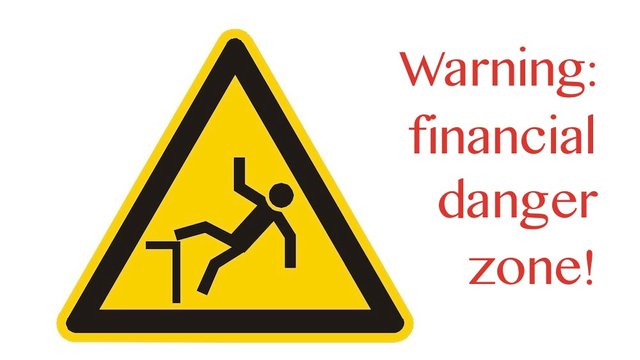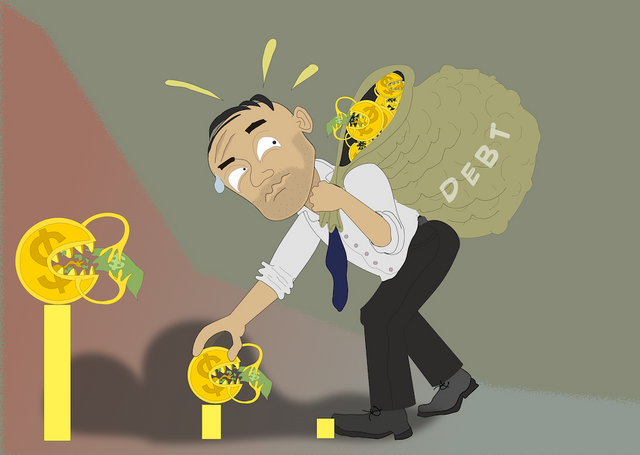Financial regulation: providing a great climate for crooks?

In a recent post, I wrote about how finding out about the high-stake financial shenanigans in the years leading up to the 2008 financial crash had led me to question a lot of things about the way we are governed.
How do people get away with playing these high-risk financial games, that directly or indirectly impact the lives of thousands – ultimately millions – and then get to walk away quietly with most of their profits, leaving turmoil behind them?
A story broke in the weekend news, about the collapse of a high-risk bond scheme that had been marketed as a high-interest fixed rate ISA (a tax-free savings scheme that operates in the UK).
Thousands of investors have lost their savings in the collapse.

Image by StockSnap.
It appears that the company that operated the scheme, London Capital & Finance (LCF), paid a company called Surge 25%, amounting to around £60m, to operate a marketing campaign.
Money was lent to 12 companies, four of which never filed accounts and nine of which were less than three years old. According to the BBC report, many of these companies lent out money they borrowed to others. Concerns have been raised about connections between the directors of companies that received money and the managers of LCF.
How can a financial services firm like this have been authorised by the Financial Conduct Authority (FCA)?
According to the BBC report:
"LCF was authorised by regulator the Financial Conduct Authority (FCA) - but the FCA said the authorisation was to provide consumer financial advice, not the sale of bonds or ISAs."That seemed quite convoluted to me, so I had a look at what the FCA was saying about the case. It appears that the bonds that these savers were investing in were actually financial vehicles known as "mini bonds", which are not regulated by the FCA. On the FCA's website, it says:
"A mini-bond is an unlisted debt security, typically issued by small businesses to raise funds.This is news to me. I have invested in short-term bonds before, and I knew they were relatively high-risk, but I had no idea they were open to this kind of practice."Mini-bonds can be attractive to investors because of the interest rates on offer. However, prospective investors need to understand the associated risks... Additionally, as with the issue of other non-transferable corporate bonds, there is no Financial Services Compensation Scheme (FSCS) protection if the issuer fails."
The FCA website adds:
"Issuing mini-bonds is not a regulated activity so firms issuing mini-bonds do not need to be authorised by the FCA. However, when an authorised firm approves a promotion for mini-bonds, they must ensure that it is in line with FCA rules that the financial promotion is fair, clear and not misleading. This means, for example, that risks are appropriately communicated."
Financial gangsters
In effect, it seems that the Financial Conduct Authority's regulation only covers the way these financial vehicles are promoted. To me, that seems like an open invitation to financial gangsters that there is a loophole waiting to be exploited.
Image by Rilsonav.
Is this not what regulation of the financial markets is supposed to prevent?
It's often said that the financial crash of 2008 happened because financial markets had been deregulated.
On the other hand, libertarians and anarchists often say the problem was too much regulation, and that the markets have never been properly free. I can see where they are coming from, and I like to think that cryptocurrency can offer a kind of decentralised self-regulation for financial transactions.
The regulation we currently have in the fiat world often seems to make things more favourable for the financial gangsters.
Why not launch an ethical bank?
Well, you can try...
Dave Fishwick is a businessman from Burnley in north Yorkshire who, in the years after the financial crash, saw how difficult it was for local businesses to obtain funding.
Dave's firm sold minibuses, and he realised that many small businesses were no longer able to buy his vehicles, because they didn't have the finance available. He started loaning them the money from his own funds, and eventually he saw that founding a small bank to lend to local businesses, funded by local savers, would be one way to stop the flood of businesses having to close up shop due to lack of liquidity.
His efforts to found the bank were covered in an award-winning TV documentary. The biggest obstacle he faced was the demand of the then Financial Services Authority* for him to put millions of pounds in a protected account as security. Without that, he was unable to obtain a banking licence.
Dave has persevered, and his "bank" operates as an independent lending company, Burnley Savings and Loans. All its profits go to charity.
Dave is still trying to get that banking licence.
*The Financial Services Authority was wound down in 2012, and replaced with the Financial Conduct Authority and the Prudential Regulation Authority of the Bank of England.
And businesses still have to rely on the big high-street retail banks for their banking. Few credit unions are allowed to lend to businesses in the UK, so small businesses have very little choice over whom they bank with.
So who does financial regulation actually protect?
Financial regulation is meant to protect us ordinary folks from financial crime, isn't it? I'm not sure if I was ever taught this in school (I wasn't taught any financial education in school – were you?) – but it just seems obvious, doesn't it?
And yet… these are extreme examples, but the "Bank of Dave", which seems to be doing exactly what banks should be doing – ie, giving savers a return while providing funds to fuel the local economy – has been struggling for eight years to get a banking licence, while the regulators' remit didn't even cover the financial practices of a company set up in 2012 and selling high-risk "mini bonds" to thousands of ordinary savers.
It does make me wonder what financial regulation is really for. Who really benefits from it? It often seems to be more about protecting the big retail banks from competition than protecting savers.
Posted from my blog with SteemPress : http://ramblingandscrambling.co.uk/uncategorized/financial-regulation-providing-a-great-climate-for-crooks/

.gif)


It is disheartening when people who are trying to help others labor tirelessly while the bad guys seem to be able to operate without being overseen.
Thanks for sharing about the "Bank of Dave." Sounds like he made a huge impact on other small businesses.
Thanks for your comments @sumatranate - spot on. The "Bank of Dave" has made a huge impact on his local business community, and continues to do so.
Congratulations! This post has been chosen as one of the daily Whistle Stops for The STEEM Engine!
You can see your post's place along the track here: The Daily Whistle Stops, Issue 425 (03/11/19)
It seems that governments protects the banks rather than the people. In fact they bail out the banks with people's money when banks collapse. @natubat
So true - governments are the guardians of the banks.
Very Good article.
Unfortunately theres a true saying that laws and regulations are like a fence. A lion will jump over, a snake will slide through but it keeps the sheep in place. Unfortunately when it comes to our own wellbeing we can only count on ourselves, no financial regulators or overseers will guard us.
A few months ago the president of KNF ( a goverment commission for finances control in Poland) was arrested for demanding bribe from a wealthy bank owner.
That kind of things is what pushed me towards cryptocurrencies and financial education in general. Trust no one ;)
Posted using Partiko Android
Thanks! Yes, it was exactly the same for me. I often think when we hear about these bribery scandals, they are just the ones who got caught. I learned so much about these things after the financial crash, and that's definitely what got me interested in cryptos.
Great saying about the fence too. Very true.